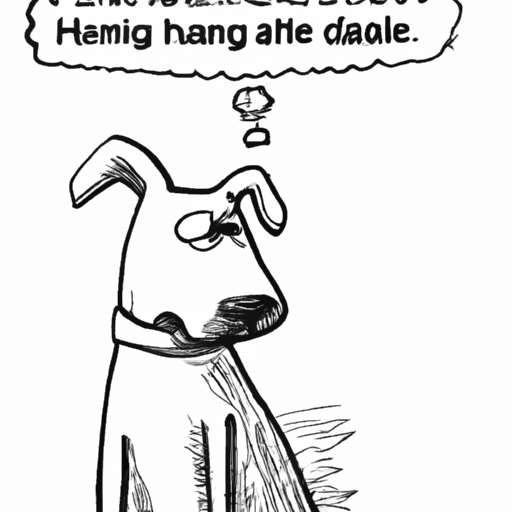Understanding the emotional intelligence of our canine companions can be a complex task. As caregivers, we often wonder: “Do dogs know when they hurt you?” This query is not only about physical pain, but also emotional distress.
1. Canine Emotional Intelligence
Dogs, like humans, possess a certain level of emotional intelligence. They can sense when their owners are upset or stressed, and often display empathetic behaviors in response.
- Empathy in Dogs: Dogs have been observed to comfort their owners in times of distress, indicating a level of emotional understanding. They may nuzzle, whimper, or stay close to their owner when they detect sadness or stress.
- Reading Human Emotions: Dogs are adept at interpreting human facial expressions and body language. They can recognize different emotions and respond accordingly.
However, it’s important to note that while dogs can sense human emotions, their understanding is not as nuanced as ours. They might not comprehend the full scope of our emotional states, but they can certainly feel when something is off.
2. Dogs’ Perception of Physical Pain
Physical pain is a different matter. Dogs may not understand the concept of causing pain to others. If a dog steps on your foot or scratches you while playing, it’s likely an accident.
- Accidental Hurt: Dogs are not always aware of their size and strength. Larger breeds, especially, may accidentally hurt their owners without realizing it.
- Playful Behavior: Sometimes, dogs may bite or scratch during play. While this can cause pain, it’s not intended to hurt. It’s vital to teach your dog the limits of play to avoid such incidents.
| Dog Behavior | Possible Interpretation |
|---|---|
| Hard biting | Overexcitement |
| Jumping on you | Seeking Attention |
| Scratching | Play |
3. Teaching Dogs About Pain
While dogs might not naturally understand the concept of causing pain, they can be taught.
- Consistent Reaction: If your dog hurts you, react consistently. A sharp yelp followed by ignoring the dog can signal to them that they’ve done something wrong.
- Positive Reinforcement: Reward your dog when they play gently, reinforcing the idea that not hurting you leads to positive outcomes.
- Training Sessions: Regular training sessions can help instil these concepts in your dog over time.
4. Emotional Pain and Dogs
When it comes to emotional pain, dogs are more in tune with their owners. They might not understand the source of your distress, but they know something is wrong and often try to comfort their owners.
- Comforting Actions: Dogs may cuddle, nuzzle, or simply sit by your side when they sense you’re upset.
- Changes in Behavior: Some dogs may act out or become more clingy when their owners are distressed.
5. The Bond Between Dogs and Their Owners
The bond between dogs and their owners is a special one. Dogs are sensitive creatures who respond to the emotions and actions of their owners. While they may not fully understand human concepts of pain and hurt, they can sense when something is wrong and often do their best to provide comfort.
FAQs
Q1: Do dogs feel guilty when they hurt you?
A1: While dogs might not feel guilt in the way humans do, they can sense when their owners are upset with them and may display behaviors that we interpret as guilt.
Q2: Can dogs sense emotional pain?
A2: Yes, dogs are quite adept at sensing emotional distress in humans. They may not understand the cause, but they can tell when their owner is upset.
Q3: How can I teach my dog not to hurt me?
A3: Consistent reactions, positive reinforcement, and regular training sessions can help teach your dog not to hurt you.
Q4: Can dogs remember when they hurt you?
A4: Dogs have a good memory, but it’s more associative than exact. They might not remember hurting you, but they can associate your reaction with their action and learn from it.
Q5: Do dogs understand when they hurt you?
A5: Dogs might not fully comprehend the concept of causing pain, but with consistent reactions and training, they can learn the consequences of their actions.



